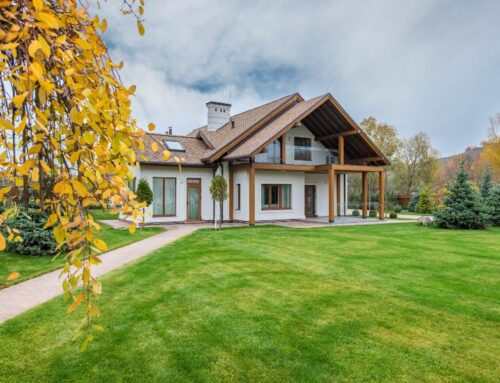Factors Baby Boomers Need to Consider When Downsizing
The furnace is broken yet again, it’s time to replace the roof, and on top of it all the yard needs maintaining. These pain points are all too familiar and become especially daunting and costly to homeowners of the Baby Boomer generation with retirement soon approaching. The next logical step for many Baby Boomers is downsizing in order to enjoy a home with less maintenance and hassles – but to rent or buy is the question.
Rental Demand
According to research from Harvard University’s Joint Center for Housing Studies, the Baby Boomer demographic had the greatest increase in rental demand growth from 2005 through 2015. Data from TenantCloud, a property management software service, shows that nearly one-third of all urban applications are for renters over the age of 60.

Many factors come into play when pondering your options – financial, social, family, and health are just some of them. Therefore, take the time when deciding to rent or buy and where to move – it will be well worth the effort. Below are factors to consider when contemplating your decision:
Determine your Goals when Downsizing
- Decide how much flexibility you want. If you are looking for long-term flexibility renting would be a smarter choice.
- Renting might also be the better choice when downsizing if you are planning on traveling a good amount and possibly living elsewhere part of the year.
- Keeping your suburban home and renting in the city during the week will give you a taste of what urban living will be like and if it is a good fit for you long-term. It will also make you more confident and comfortable when you make your final decision.
- If you are concerned with how you might adapt to having a landlord who will make all of the decisions related to your home, then consider positive aspects of renting mentioned within this post. You may find the positives of renting outweigh those of owning.
- Evaluate your current health status. If you need to move into an assisted living community in a few years then renting might be the better choice.
- When considering your choices, think about the demographics of the community as far as age is concerned – you may prefer to live in a 55+ community vs. a neighborhood with young families.
It may not be the main reason for downsizing, but your financial health is important when making any move to a new home whether renting or buying. Here are a couple of points to consider when evaluating the financial aspects:
Financial Options
- A condo in the city can be just as expensive as a large home in the suburbs; however, the flexibility and the conveniences of city life - such as having restaurants, shops, and amenities within walking distance – may outweigh some financial factors.
- Historically, real estate appreciates about 3 percent a year, while the stock market appreciates nearly 10 percent annually. Renting can provide you the opportunity to invest cash you would have invested in buying a home into the market where it can grow and contribute to a more comfortable retirement.
- Renting out your suburban home is an option, but most of the time the rent generated rarely covers the costs associated with owning the home. For this reason and to escape the headaches of owning a large home, most people will sell their house when downsizing.
Have Questions About Downsizing?
If you are thinking about downsizing, call us today so we can discuss your options.






